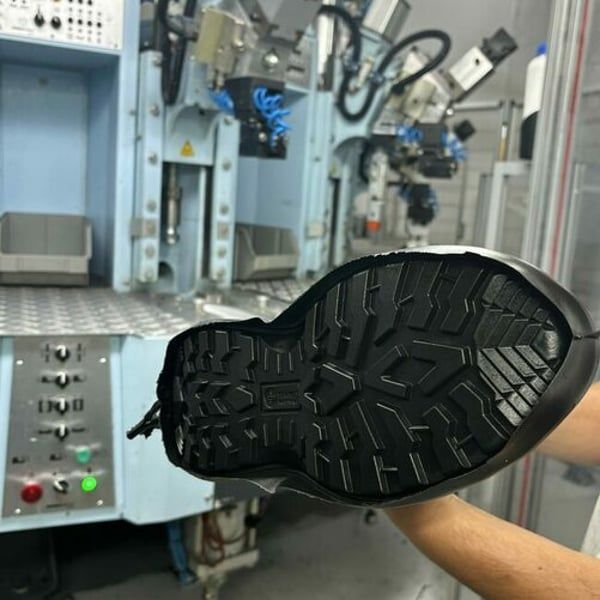Home of one of the main footwear production groups in Europe, Portugal is sought above all for their leather shoes, which in 2023 represented 71% of their exports. The sector not only aims to go further by diversifying the destiny of its production, but also intends to multiply its growth options. To this end, he has invested in technological development to strengthen his presence in segments such as technical and professional footwear.
The industry seeks technical and professional footwear for growth
With an eye on these segments, the industry aims to double technical footwear exports to reach 100 million euros by 2030.
Reinaldo Teixeira, president of the Futwear Technology Center, emphasized in a statement issued by ApicCaps that “Portugal already has all the conditions to establish itself as a reference point in the development of technical footwear,” and added: “We have knowledge, installed capacity and we are prepared to expand our offer, even in the military segment.”
The military segment is, in fact, one of the great bets of the sector in the professional footwear field. Luís Onofre, president of the Portuguese Footwear Association, Components, Leather Products and its Substitute (ApicCaps), believes that the expected increase in investment in defense, considering the current world scenario, represents “an opportunity” for the sector.
“Portugal has a long tradition of supplying the main European security and military forces,” he recalled, adding that “the reinforcement of the defense budgets of NATO countries could be an opportunity” for the Portuguese industry.
The sector invests 50 million euros with the Faist project
As this is a more demanding segment in technical terms and in terms of certifications, to consolidate and expand its horizons in this type of footwear, the Portuguese cluster has invested in initiatives that cover the industry as a whole.

The Faist project (agronymal agile, intelligently and technologically sustainable factory) was born precisely with the aim of developing avant -garde technology capable of providing companies with the best technical solutions to respond to the market. As part of the PRR (recovery and resilience), it brings together 44 partners and falls to an investment of 50 million euros to enrich the sector “with innovative technologies, sustainable processes and materials, increasing its ability to respond to market demands and continue making the Portuguese industry of leather products and leather goods the most modern in the world.”
LED by the company Carité and Technically Coordinated by the CTCP (Footwear Technology Center of Portugal), The Consortium Involved in the Faist Project Brigs Together 14 Footwear and Leather Goods Companies, Nine Component Companies, 15 Technology-Based Companies, And Six Associative Entities from the Scientific and Technological Interface, which have come Together to Invest in the “Development of Robotic and Automated Production Process, Production Management and Control Software, in Parallel with the Development and Production of new types of organic and sustainable products.” In more precise terms, the consortium has committed to develop 34 pieces of equipment, 20 software solutions, five integrated production lines, more than 15 innovative products and components of footwear, and three units of experimentation and pilot demonstration.
With companies such as Carité and AMF committed to the development of technical and professional footwear, particularly using new automated production solutions, or Fernando Ferro developing and producing automation lines to equip the main actors in the sector, the Portuguese footwear has taken consistent measures to affirm beyond the limits of the classic models made of leather.

Florbela Silva, FAIST coordinator, believes that the project “is repositioning the internationally Portuguese footwear industry”: “Reindustrialization and the use of high productivity processes are allowing companies to manufacture faster competitive prices, managing to enter large distribution chains, particularly in the most technical segments.”
An industry with an international perspective
In 2024, the Portuguese footwear cluster (which includes footwear, components and companies of leather items) generated 2.2 billion euros, with footwear that represents 77% of exports, leather items (bags and accessories such as belts) for 19% and components for 4%.
Exporting 90%of its production to more than 170 countries, almost 80%of the production of the sector is intended for the European Union, with Germany leading the road (23%), followed by France (19%) and the Netherlands (12%).
The efforts to diversify Portuguese footwear have also involved the diversification of destination countries. Currently, the United States is the largest market for Portuguese footwear outside Europe, which represents 5.2% of the cluster exports, which have also invested in Asian and Latin American markets to reduce Europe dependence and multiply growth opportunities.
This article is an automatic translation. Click here to read the original article.
Copyright © 2025 Fashionnetwork.com All rights reserved.












